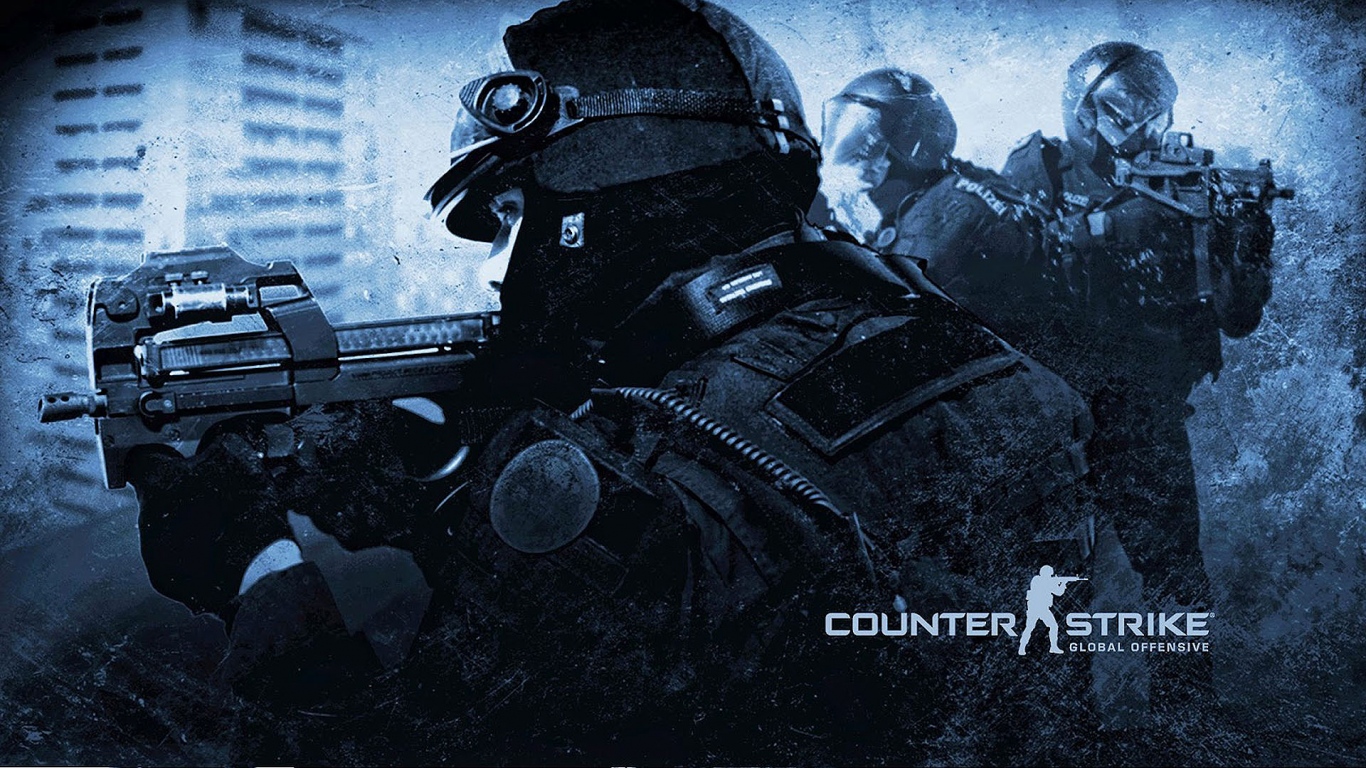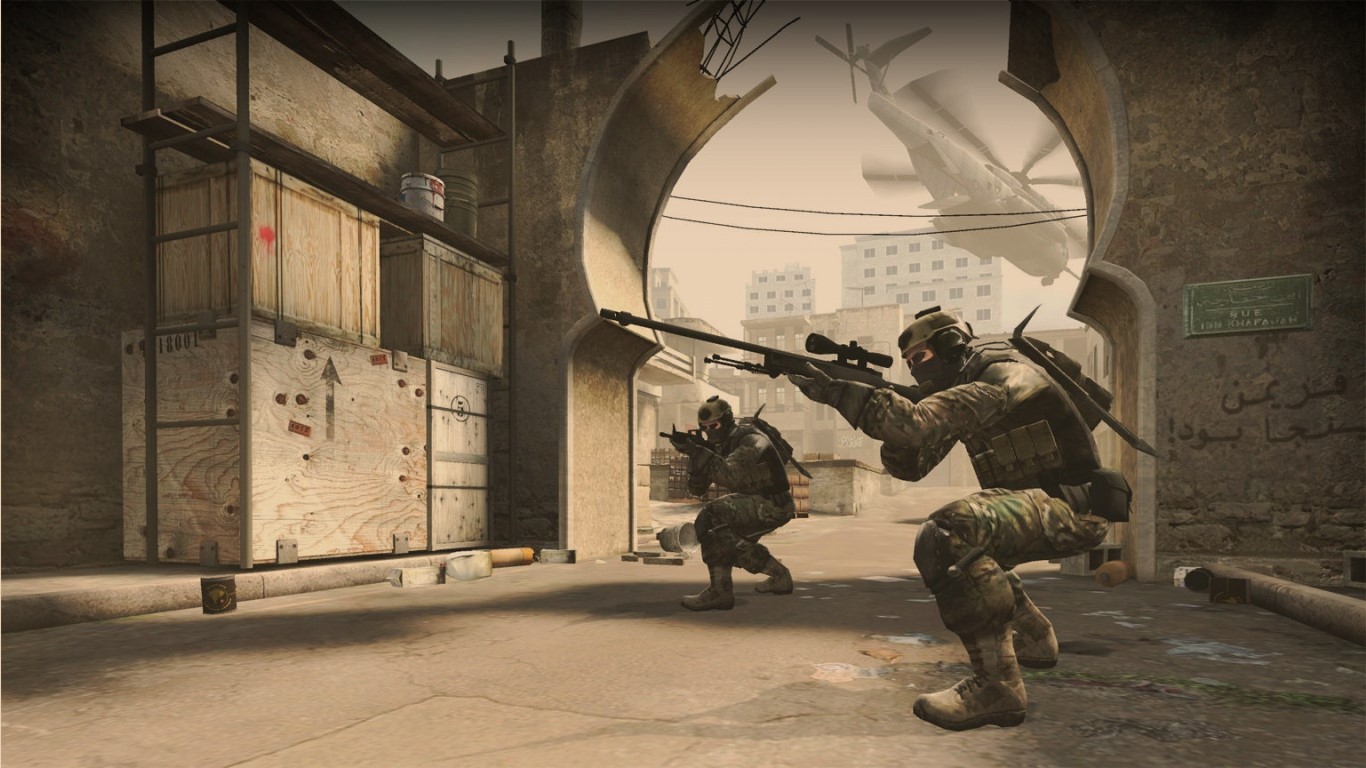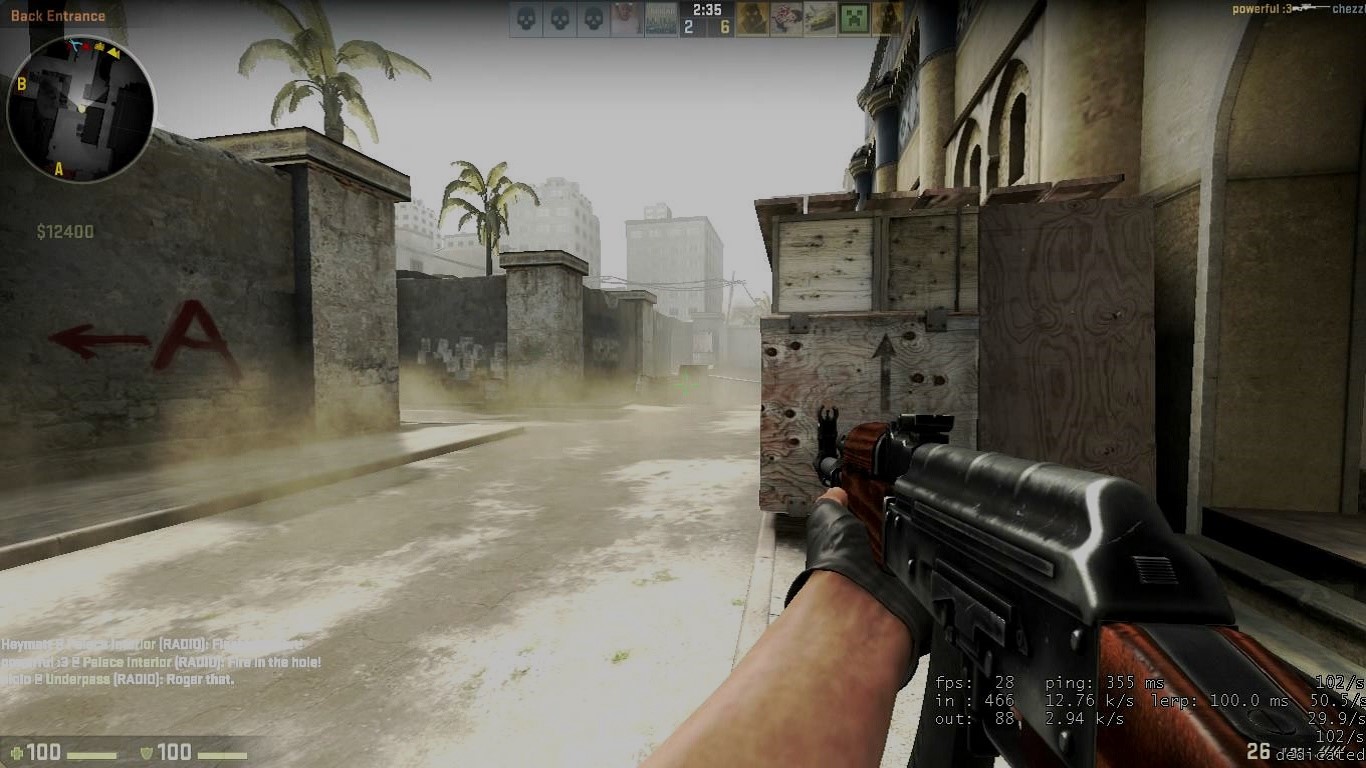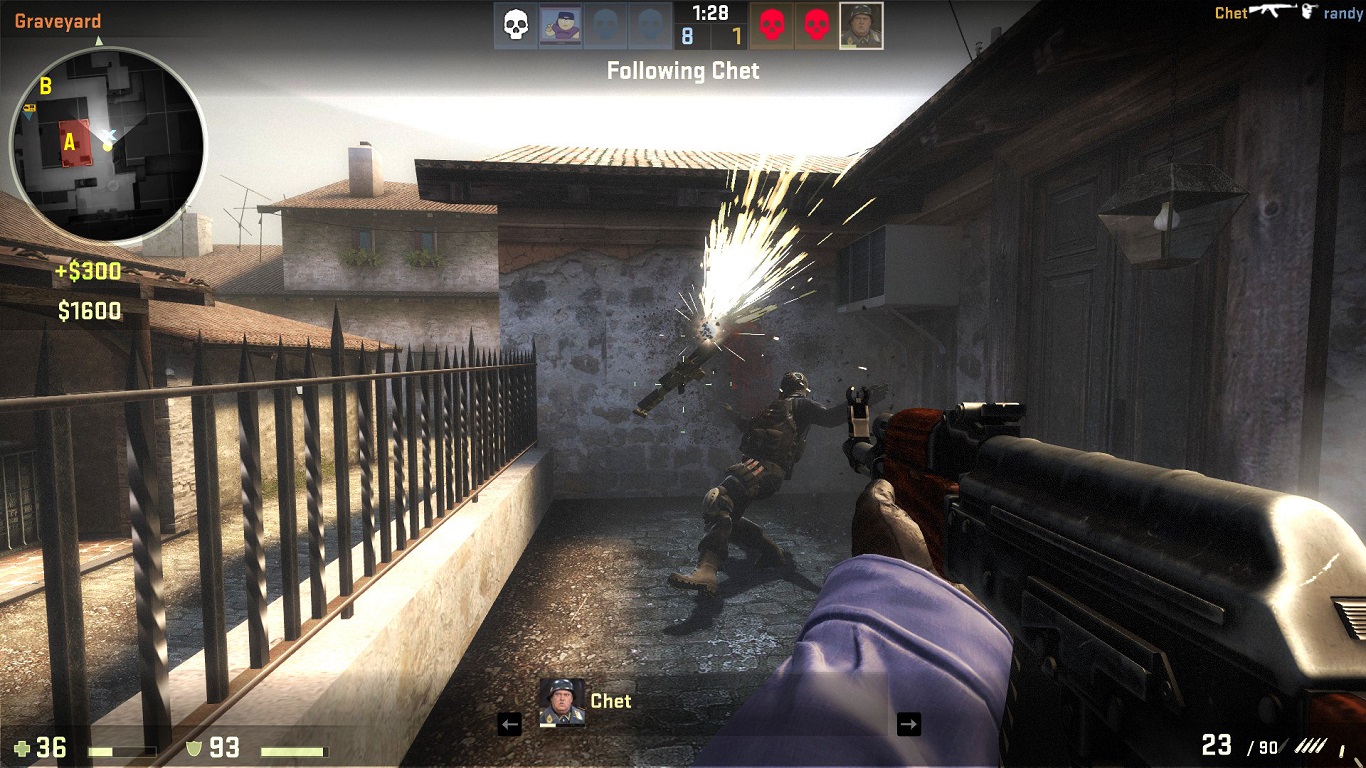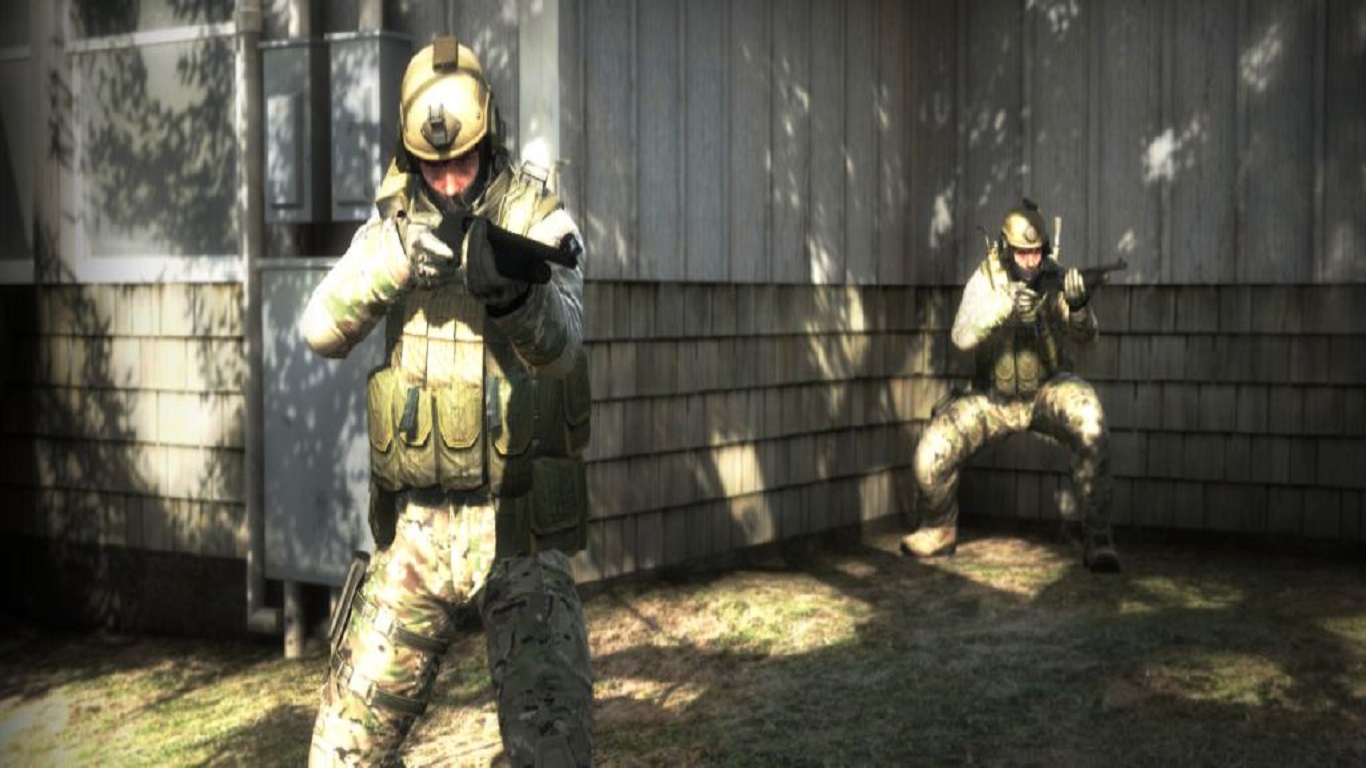INTRODUCTION
Counter-Strike: Global Offensive (colloquially referred to as Global Offensive or simply CS:GO) is a multiplayer first-person shooter video game develope by Hidden Path Entertainment and Valve Corporation. It is the fourth game in the Counter-Strike series, and was released for Microsoft Windows, OS X, Xbox 360, and PlayStation 3 in August 2012, with the Linux version being released in September 2014. Cross-platform multiplayer was planned between Windows, OSX, Linux, and PlayStation 3 players, but was ultimately limited to the computer versions because of the difference in update frequency between systems.The game pits two teams against each other: the Terrorists and the Counter-Terrorists. Both sides are tasked with eliminating the other while also completing separate objectives, the Terrorists, depending on the game mode, must either plant the bomb or defend the hostages, while the Counter-Terrorists must prevent the bomb from being planted or to rescue the hostages. There are six game modes, all of which have distinct characteristics specific to that mode. Global Offensive has matchmaking support that allows players to play on dedicated Valve servers, as well as allowing members of the community to host their own servers with custom maps and game modes. Global Offensive has a competitive scene, with Valve-sponsored tournaments known as the "Majors" being the premier competitive event for the game.
Global Offensive received positive reviews from critics. The game was praised for its overall gameplay and faithfulness to the previous iterations in the series. Some of the early features were criticized, and while the console versions received positive reviews, reviewers believed there were obvious differences between the console and PC versions of the game.
GAMEPLAY
The gameplay in Global Offensive is similar to that of previous games in the Counter-Strike series in the sense that it is an objective-based multiplayer first-person shooter. Players play as one of two teams; the Terrorists or the Counter Terrorists, with both teams having different objectives: the Terrorists' being to plant the bomb and have it explode or to protect the hostages, and the Counter-Terrorists' being to prevent the bomb from being planted and exploding, or to rescue the aforementioned hostages, depending on the map. At the start of every round players get the opportunity to purchase weapons and equipment with their money that is awarded based on their performance in the previous round. Winning rounds results in more money than losing, and completing objectives such as killing enemy players results in more money. Negative actions, such as killing teammates, will result in a penalty.There are six different game modes in CS:GO. These consist of Competitive, Casual, Arms Race, Demolition, Deathmatch, and Weapons Course. All of these options have both online or offline options except the Weapons Course, which is offline only. Competitive mode is the most serious, with players being put into a 5v5 match that takes around 45 minutes to complete. Arms Race mode is similar to the "Gun Game" mod for other games in the series. It consists of players racing to upgrade their guns via killing enemies. Demolition mode is again like the "Gun Game" mod, but in Demolition the players are able to plant and defuse the bomb too, and only receive a gun upgrade at the end of the round if they killed an enemy. The Casual and Deathmatch modes are less serious than the Competitive modes. They both have team damage and collision disabled and are primarily used to practice. The Weapons Course is an offline practice mode designed to help new players learn how to use the basic items, such as grenades and guns.
Matchmaking is supported for all online game modes through the Steam software, and runs Valve Anti-Cheat to prevent cheating. In the competitive modes, players are encouraged to act more strategically in CS:GO than in most other multiplayer games due to inability to respawn once killed. When playing competitively, each player has a rank based on their skill level and is paired up with players of around the same skill level. Another form of matchmaking, known as "Prime", is available to players who have registered a phone number to their accounts. This was introduced to try to prevent legitimate players from playing with cheaters or high-skilled players playing on alternate lower ranked accounts, a practice known as "smurfing". The PC version of Global Offensive supports private dedicated servers that the player may connect to through the community server menu in-game. These servers maybe heavily modified and in turn, can be completely different from the base game modes. There have been many community made mods for CS:GO, one of the more popular ones being known as "kz", a mod which allows players to complete obstacle courses that require advanced strafing and jumping techniques.
CS:GO added new weapons and equipment not seen in previous installments, most notably the firebomb for each side (referred to as a Molotov on the Terrorist side and as an Incendiary Grenade on the Counter-Terrorist side). These temporarily cover a small area in fire, dealing damage to anyone passing through. The game also saw the introduction of the Zeus taser and a range of new guns, including shotguns, pistols and sub-machine guns. Two new game modes, Arms Race and Demolition, both based on mods for previous iterations in the series, were added, along with a total of eight new maps for said game modes.
